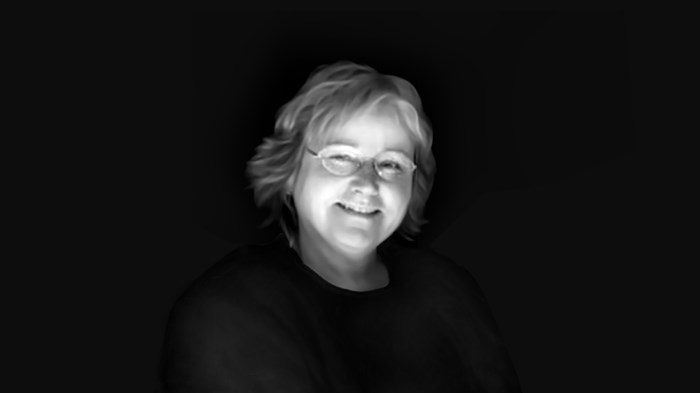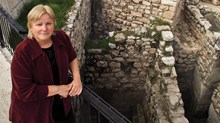
Eilat Mazar, a nonreligious archaeologist who embraced the unfashionable idea of digging with a shovel in one hand and a Bible in the other, died Tuesday at 64.
In her five decades excavating the Holy Land, Mazar discovered the remains of a palace believed to belong to King David, a gate identified with King Solomon, a wall thought to have been built by Nehemiah, two clay seals that name the captors of the prophet Jeremiah, seals that name King Hezekiah, and a seal that may have belonged to the prophet Isaiah.
Once called the “queen of Jerusalem archaeology,” Mazar took the Bible seriously as a historical text and quarreled with scholars who thought it was unscientific to pay too much attention to Scripture.
“Look,” she told Christianity Today in 2011, “when I’m excavating Jerusalem, and when I’m excavating at the city of David, and when I’m excavating near the Kidron Valley and near the Gihon Spring and at the Ophel—these are all biblical terms. So it’s not like I’m here because it’s some anonymous place. This is Jerusalem, which we know best from the Bible.”
Mazar said she was not religious but would pore over the Bible, reading it repeatedly, “for it contains within it descriptions of genuine historical reality.”
Mazar sometimes literally took directions from the sacred text. In 1997, she wrote about how 2 Samuel 5:17 describes David going down from his palace to a fortification. Assuming that was an accurate description and looking at the topography of Jerusalem, she identified the place where David’s palace should be. In 2005, she was able to start excavation at the site, and almost immediately discovered evidence she was right—and so was the Book of Samuel.
“I [can’t] believe these archaeologists who ignore the Bible,” Mazar told CT. “To ignore the written sources, especially the Bible—I don’t believe any serious scholar anywhere would do this. It doesn't make any sense.”
Mazar was born in Israel in September 1956. She started going on digs at age 11, under the tutelage of her famous archaeologist grandfather, Benjamin Mazar.
The elder Mazar was a Jew born in Russia who studied archaeology in Germany before emigrating to what in 1929 was British-controlled Palestine. He became one of the founding fathers of modern Israel, and his excavation helped advance the idea that Israel was the Jewish homeland.
He involved his sons and as many of their children as he could recruit in his projects. In 1967, he started training the 11-year-old Eilat on the Temple Mount excavation, shortly after the site in Jerusalem’s old city was captured by Israel in the Six-Day War.
“It’s nice to touch your history,” she said.
Mazar earned a bachelor’s degree from Hebrew University in 1981 and went to work as a professional archaeologist. She had a brief marriage immediately after finishing her mandatory military service. It ended in divorce. She got remarried to archaeologist Yair Shoham. He died suddenly in 1997, at the age of 44. That same year, Mazar finished her doctorate at Hebrew University, writing a groundbreaking thesis on the biblical Phoenicians based on her excavation of a Phoenician site in northern Israel.
Critics said that Mazar sometimes made too much of her discoveries and was too quick to connect the things she unearthed to biblical stories. One scholar toldThe New York Times that Mazar was like someone who has a button and wants to call it a whole suit. Others said she was unduly influenced by a political agenda, and pointed out that her funding came from conservative, pro-Israeli sources.
Her fiercest critic was archaeologist Israel Finkelstein, who taught that David’s biblical kingdom was greatly exaggerated, probably no more than a hill-country village occupied by a tribal chief.
“You cannot study biblical archeology with only a simple reading of the text,” he said in 2006. “The Bible cannot be understood without a knowledge of the millennia of biblical criticism that has gone along with it. … The Bible is an important source, but we can’t take it seriously.”
Other authorities came to her defense, however. Hershel Shanks, the founding editor of Biblical Archaeology Review who frequently clashed with scholars, said Mazar’s approach was perfectly scientific. She started with a hypothesis from the Bible, and then tested it by digging.
What she found, by any measure, was remarkable. CT.

.jpeg)